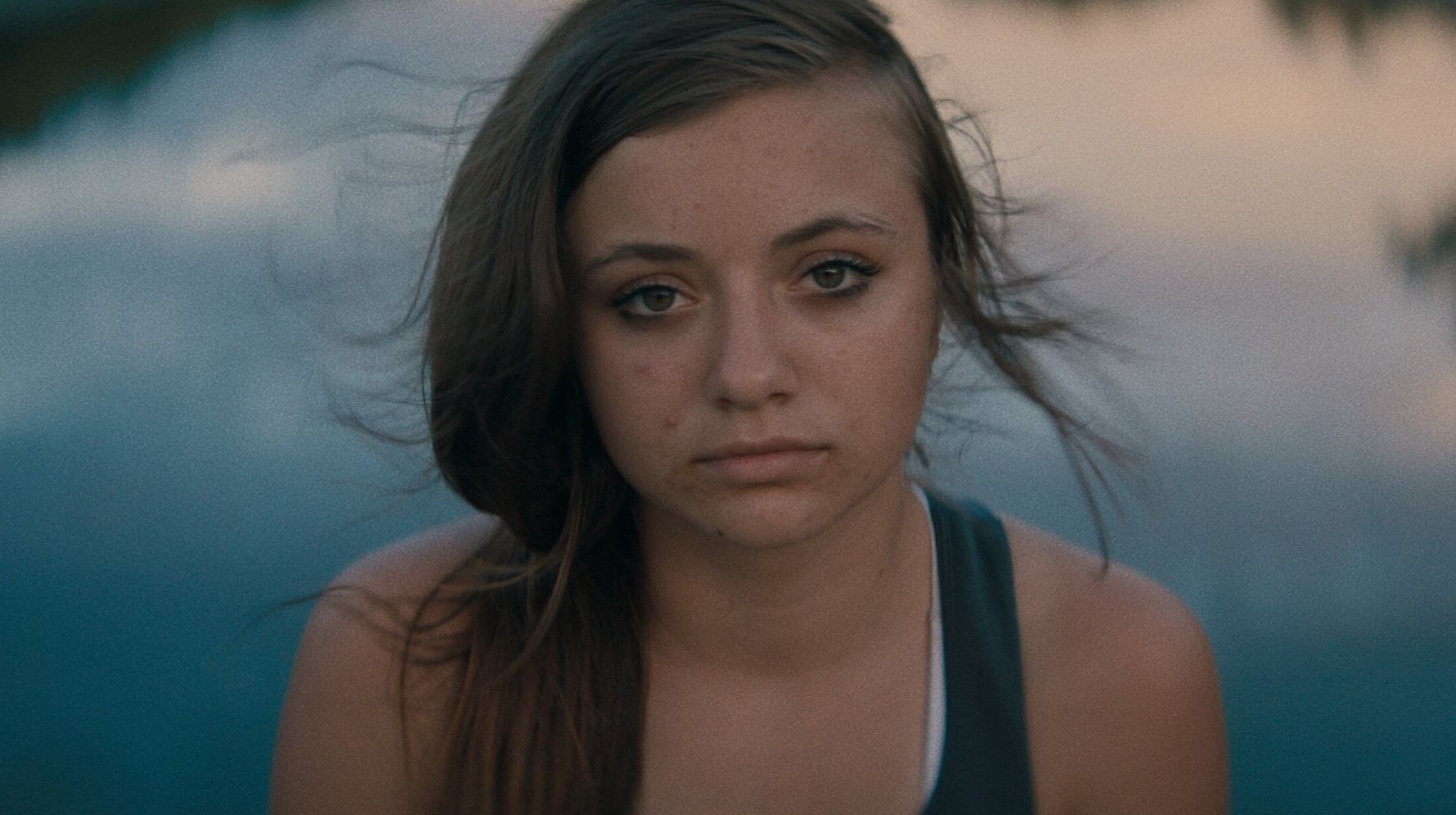[ad_1]
Chris Brunet has a tough decision to make, and he’s quickly running out of time.
As a lifelong resident of Isle de Jean Charles, Brunet, 54, is considered to be among America’s first “climate refugees.” He’s contemplating whether to stay on the sinking island, located on the coast of Louisiana, or relocate, leaving the only place he’s ever called home.
As a result of rising sea levels, coastal erosion and hurricanes, Isle de Jean Charles is starting to disappear. Since 1955, the 22,000-acre island has lost roughly 98% of its land, and the future looks bleak. Some estimates predict it will be fully submerged under water in five to 25 years. It’s why the U.S. Department of Housing and Urban Development has approved a $48 million federal grant ― the first of its kind ― to relocate the community, primarily Native Americans, to higher ground by 2024. As part of the voluntary resettlement project, Louisiana is developing a new area about 40 miles northwest of the island on some 515 acres of land.
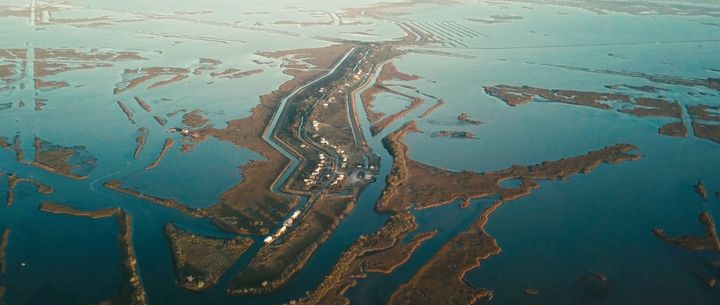
Connected to the mainland by a two-lane road that regularly floods, Isle de Jean Charles has gradually seen residents move away, shrinking its population to just a few dozen people today. Some were displaced after Hurricane Isaac hit in 2012. Others have since decided to relocate. Now there are just about 15 houses left on the island, Brunet says. But parting ways with Isle de Jean Charles is difficult for someone like Brunet.
“For me, it’s the only place I’ve ever lived,” he told HuffPost. “And that goes back to the parents, grandparents, great-grandparents ― all the way to when it began to be inhabited.”
Brunet also has a family to consider. He’s raising his niece, Juliette, and nephew, Howard. The siblings, who lost their parents at a young age, are the last teenagers living on Isle de Jean Charles.
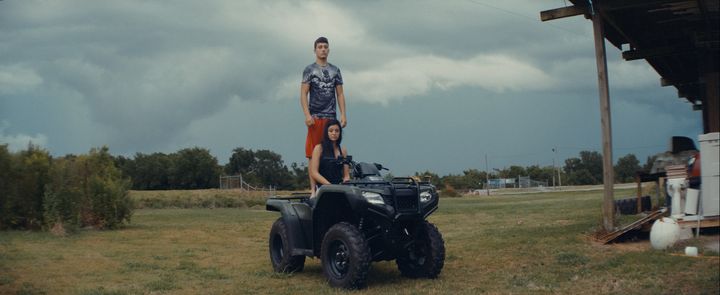
Howard and Juliette’s personal stories, particularly their strong ties to the island, come to life in the new RYOT Films x HuffPost short documentary called “Lowland Kids.” Directed by Sandra Winther, a New York-based filmmaker from Copenhagen, Denmark, the film examines the preservation of culture and what it means to lose your home to the sea.
“It’s the case with many of these people who are affected, it’s families that don’t have a lot of resources, living below the poverty line, or living in an area like this where this is all I’ve got,” Winther said.
At 16 years old, Juliette has already witnessed the creeping demise of the only home she’s ever known. “Where I live, you can go fishing in your backyard,” she said.
But now the fish aren’t as plentiful as they once were and the land is changing.
“You can just tell just by looking,” Juliette said. “When I was younger we used to have more trees. Now it’s just empty.”
“If the land that would have been here 60 years ago would still be there today, I wouldn’t be talking with you right now,” Brunet said. “There’s something bad that has happened. I believe it’s erosion — the greatest change of my landscape where we come from. … So this whole area is affected by changes of coastal erosion.”
Winther’s film steers clear of the politics surrounding climate change, instead focusing on the remaining people on the island, the attachment to place and the changes that impact the beautiful landscape of Isle de Jean Charles, known for its stunning sunrises and sunsets.
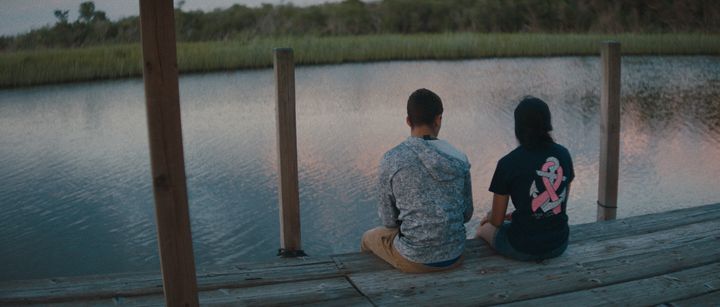
“I would hope that no matter where you are politically or what you believe, or if you don’t believe that climate change is really happening, when you watch this film, I don’t think there’s any denying that the climate is changing very drastically,” said Winther. “I hope this doc shows how this is a gradual thing that’s happened over decades, just eating at the land and deteriorating the land of what was once a happy, beautiful place.”
Winther likens the documentary to a time capsule, noting how Isle de Jean Charles will at some point “cease to exist.”
“That’s the really sad part about it. … I feel like I can understand now what it must feel like to have it sort of disappear before your eyes,” she said.
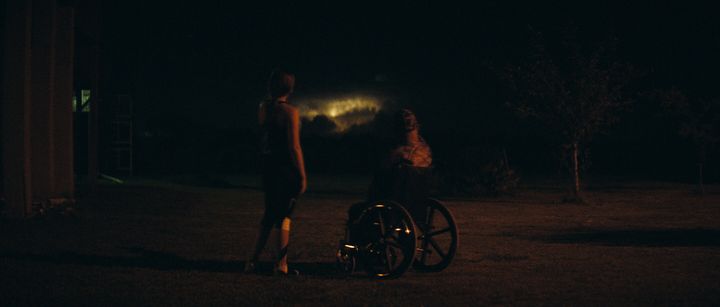
The state hopes to offer at least some of what Isle de Jean Charles has. The new government-funded homes are all expected to be within a five-minute walk of a park or natural space (fishing ponds included), and the state vows to try to help preserve the islanders’ diverse cultural identities and traditions. There’s expected to be local employment opportunities as well.
But even these concessions are not enough to convince all of Isle de Jean Charles’ residents to head inland.
“I have to see if I want that as my future. … I’ve always known my environment,” Brunet said. “I’ve always felt at peace. I’ve never felt threatened or challenged even though the weather elements and events have always been part of our life. But moving to a new ground is a different area that I’m not used to. … I’m still trying to make up my mind.”
“I really don’t know the answer, to be honest,” Juliette said. “I really don’t want to think about leaving. It’s not going to be the same.”
“Lowland Kids,” which premiered at SXSW 2019, can be viewed in its entirety above.
REAL LIFE. REAL NEWS. REAL VOICES.
Help us tell more of the stories that matter from voices that too often remain unheard.
[ad_2]
Source link

